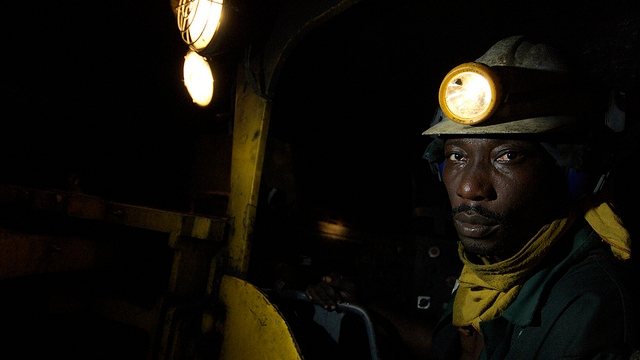OVERVIEW
Oil, gas and mining are critical to the global economy, but translating natural assets into tangible benefits for countries and their citizens is far from simple. Good governance is essential to success. The Extractives Governance Incubator Global Solutions Group draws on the diverse and extensive knowledge, expertise and experience of the Governance Global Practice (GGP) to reinforce governance along the extractive industries value chain from licensing and contracting to revenue capture and management to assuring a clear development dividend at the local level. The core focus is on strengthening the effectiveness of the institutions managing extractives and, in turn, building trust in those institutions. Working closely with the World Bank Group’s Extractives Practice, the Incubator Group addresses the challenges facing more than fifty resource-rich client countries through a mix of investment lending, analytical work, technical assistance, capacity building and global engagement. Priority issues include tax administration capacity building, tailored public financial management, political economy assessments and innovative approaches that support greater transparency and accountability.
PROGRAMMING EXAMPLES
Extractives Revenue Reporting Systems
In the past decade, the Extractive Industries Transparency Initiative has championed and fostered greater transparency in the oil, gas and mining sectors. Yet relatively little progress has been made so far to strengthen countries’ existing financial reporting data and systems to provide accurate, timely revenue information and avoid bespoke, non-government alternatives. To help address this gap, the World Bank Group has launched a global pilot aimed at embedding extractive revenue reporting into national government fiscal reporting systems. Based on initial country assessments, a number of core issues merit attention:
a) Institutional arrangements, procedures and systems: weak institutional capacity is often amplified by the fact that responsibility for managing and receiving revenues from the extractives sector is fragmented among several institutions whose systems are not integrated.
b) Non-tax revenue administration: most non-tax revenues are collected separately by a government agency that manages energy and mining-related issues. As a result, information is often not captured in detail in financial management information systems, and non-tax revenues (self-assessed by companies) are not recorded prior to payment.
c) Timeliness of reports: the process of EITI reconciliation, completion and publication can take several years. Such delays limit the EITI report’s relevance to feed directly into policy and budgeting processes.
The Governance Global Practice’s support to improve the effectiveness of the extractive industries’ fiscal reporting systems can help produce more timely, consistent and coordinated sets of information. This can reduce the need to allocate time and resources to reconcile information across different reporting frameworks, and allow the focus to be on supporting more informed policy making on revenue capture and management.
Open Contracting in Extractive Industries
Extractive industries’ contracts have typically been shrouded in secrecy. Opacity around how deals are awarded and their terms has limited the ability to assess agreements and to ensure that the terms are being met. This can lead to misplaced assumptions and undermine the stability of agreements.
However, this is changing. More and more countries are now disclosing extractives contracts. There are more avenues for effective participation in the contracting process from pre-award to implementation. The World Bank Group has been at the forefront of facilitating such change, not least in supporting the development of the Open Contracting Partnership (OCP).
This has involved working with governments to increase accessibility to contracting information, as in the case of the GGP’s work with the Natural Resource Governance Institute and OCP to assist the Guinean Government in creating a dedicated portal for all its mining contracts with annotations to aid understanding and reduce mistrust and misconceptions among stakeholders.
The GGP helps government officials and other stakeholders build capacity to fully understand contract processes and legal documents so they can fulfill their roles effectively. A suite of tools to support these processes include a global database of oil, gas and mining deals and guides to a new contract data standard. In Mozambique, the GGP team followed a “contract roadmap” methodology with government officials, civil society representatives and media for accessing, understanding and utilizing contract information. This set the stage for a collaborative exercise to review previously confidential contracts – a testament to the important progress made in furthering the transparency and accountability agenda in Mozambique’s extractive sector.
Effective capacity building enables the informed use of contract data. For instance, a coalition of Burkinabe CSOs focused on the extractive industries has been working to improve their credibility and ability to engage with counterparts from the public and private sectors around these issues. As part of a recent Bank-supported contract monitoring project in five countries, the coalition investigated the issue of local content in the mining sector by monitoring two mines, Essakane and Kalsaka, to determine whether the companies were meeting employment obligations. Their positive findings improved relations and dialogue between interested parties and opened a space for more constructive dialogue. This led to joint recommendations for adaptations to local content policy. In Mongolia, similar capacity building has prompted innovative approaches by herder communities to monitor mine closure provisions. Open contracting can help ensure that citizens see the full benefits of existing agreements and lay the groundwork for stable deals in the future that maximize the development potential of natural resources.
